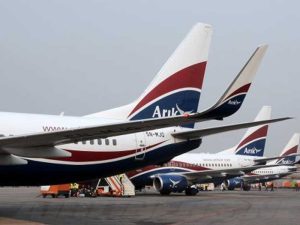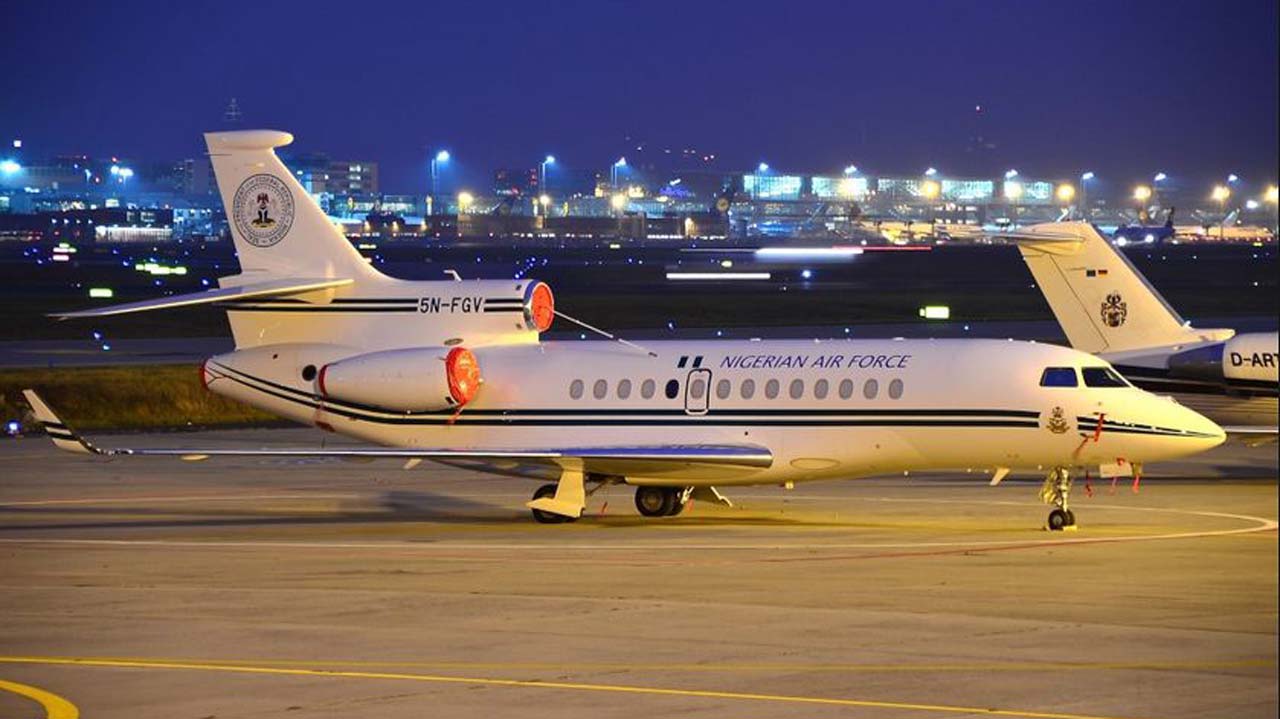
Poor passenger growth, high cost of operation and high exchange rate have impeded domestic airlines financing which calls for effective and prudent management of lean resources.
This has also affected the revenue of the Nigeria Civil Aviation Authority (NCAA), which depends largely on five per cent passenger and cargo sales charge to generate revenue.
As airlines are going through economic drought, they find it challenging to effectively remit the obligatory charges to NCAA, although these charges come from passengers who pay the charges through their flight tickets and they are collected by the airlines on behalf of the regulatory authority.
The implication is that if the airlines face financial quagmire, as indications currently show, it would also affect the regulatory authority and subsequently other aviation agencies.
This was part of the discussions thrown up at the Aviation Finance/Revenue Assurance Summit held in Lagos, where finance and aviation experts brainstormed on ways to improve revenue and effectively manage financial resources in the sector.
One of the resource persons, who is also a consultant in the aviation industry, Dr. Michael Awa, noted that the aviation industry operates within a highly regulated environment that demands strong financial management strategies to drive sustainability, efficiency and the improvement of safety concerns.
He stressed that achieving these goals requires seamless collaboration among key stakeholders, including aviation government agencies, regulators, airlines, financial institutions and services providers to create a stable and supportive operational framework.
He spoke about the factors that hinder profitability among domestic airlines and this include escalating operational costs, rising fuel prices, maintenance expenses, and labour costs. Then there are also other challenges including cybersecurity threats, as increased digitalization has made financial transactions and data vulnerable to cyberattacks, in addition to managing limited financial resources effectively.
Awa also noted that the current economic situation is exacerbated by stringent regulatory requirements and evolving taxation policies, which further pose financial challenges and noted that one of the challenges in the industry is frequent policy changes, remarking that aviation finance regulations are frequently evolving, requiring constant monitoring and adaptations.
Reviewing the current financial landscape, Awa said airlines often relied on heavy borrowing, making them susceptible to interest rate charges and liquidity, and also observed that high capital expenditures and limited access to financing affect sustainable financial initiatives.
Awa said one of the ways airlines can survive is through collaboration and partnerships, including working effectively together with aviation agencies. He regretted that fluctuating demands, fare competition and external economic factors create instability in revenue streams.
“The cost of aviation fuel remains a significant variable in financial planning, with airlines increasingly adopting fuel hedging strategies. In the post pandemic recovery, airlines are focusing on capacity rebuilding, cost-cutting measures, and optimizing revenue streams following the disruptions caused by the COVID-19 pandemic,” he said.
Speaking, the Director General of NCAA, Captain Chris Najomo stated that the economic challenges besetting the industry has challenged us at the NCAA to re-strategies and re-model our approach to discharging our constitutional responsibilities, part of which is what we are witnessing today.
“Essentially the lack of the required collaboration and synergy between the revenue and cost recovery units of the Authority and their counterparts in the airlines has been the major reason for the underperformance in terms of revenue projection and collection targets. There tend to be wide gaps between the revenue generated and actual collection in the NCAA.
“This situation which is tantamount to under optimization is mostly traceable to the poor working capital management capacity of the CFOs/Head of Accounts of the domestic airlines and their deputies on one hand and the informational inefficiency as well as lack of co-operation and synergy on the other hand. The CFO’s tend not to be fully aware of their statutory obligations to the Authority with regards to prompt remittance and credible revenue reporting and financial dealing with the NCAA in line with international best practice and global air transport and civil aviation standards,” Najomo said.
In the communique released after the summit, participants agreed that Chief Financial Officers (CFOs) of airlines must monitor changes in government policies and regulations in a bid to ensure airlines are in tandem with developments in the global aviation industry.

They noted that updates like safety, security, and environmental regulations from organisations like International Civil Aviation Organisation (ICAO), International Air Transport Association (IATA), Airport Council International (ACI), Federal Aviation Administration (FAA) and NCAA, should continuously be monitored and updated. The operators are to also ensure the appointment of compliance officers to track and interpret these new regulations, stating that aviation companies, especially the airlines through the office of CFOs, should ensure quick reconciliation of financial statements with the respective approved government agencies. Also, the participants canvassed for proper training and retraining of technical personnel, including the finance team in order to further entrench safety in the system, ensure improved finances for airlines in the Nigerian aviation industry and remain relevant in the system.






